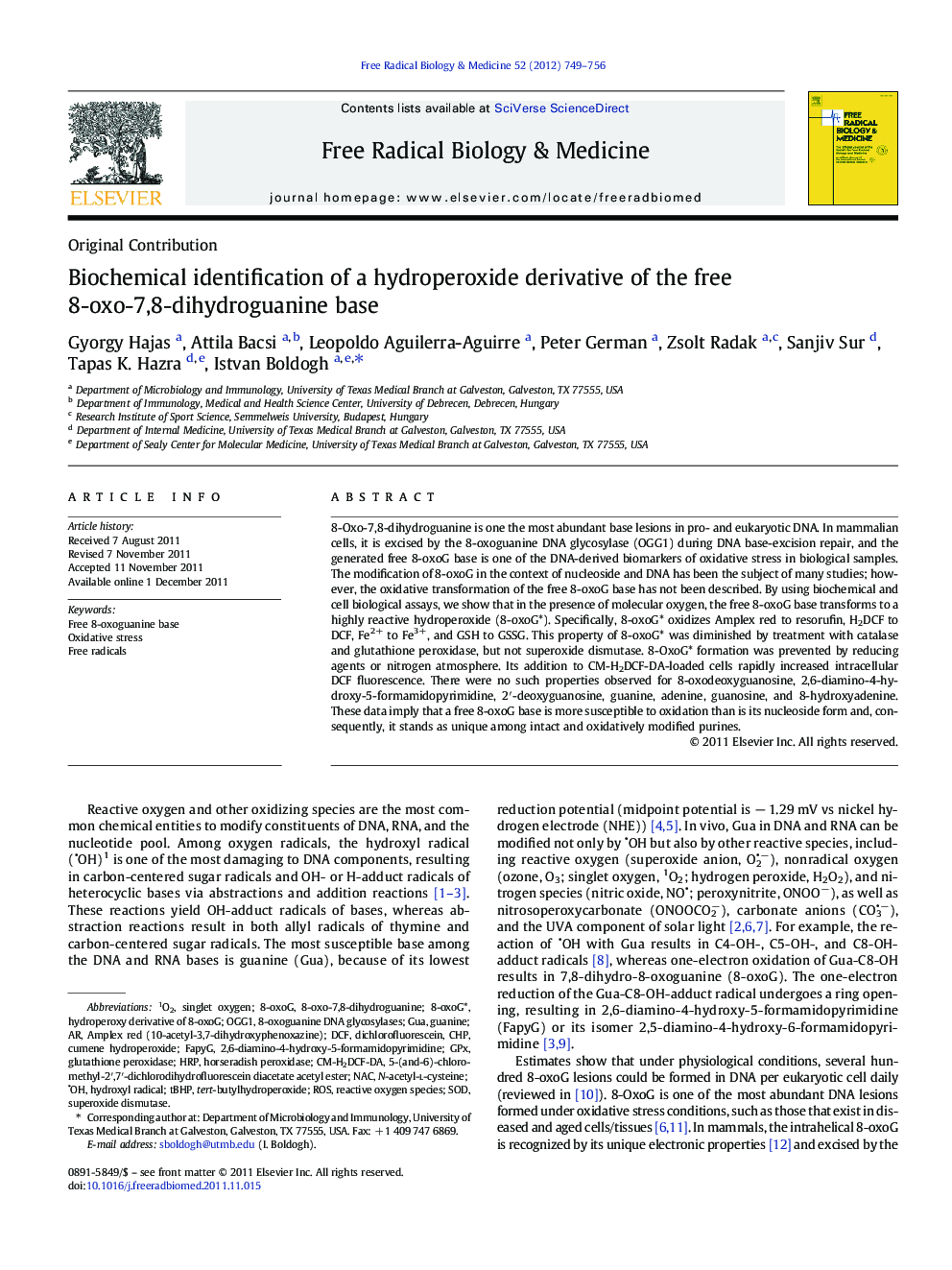| کد مقاله | کد نشریه | سال انتشار | مقاله انگلیسی | نسخه تمام متن |
|---|---|---|---|---|
| 1909108 | 1046701 | 2012 | 8 صفحه PDF | دانلود رایگان |

8-Oxo-7,8-dihydroguanine is one the most abundant base lesions in pro- and eukaryotic DNA. In mammalian cells, it is excised by the 8-oxoguanine DNA glycosylase (OGG1) during DNA base-excision repair, and the generated free 8-oxoG base is one of the DNA-derived biomarkers of oxidative stress in biological samples. The modification of 8-oxoG in the context of nucleoside and DNA has been the subject of many studies; however, the oxidative transformation of the free 8-oxoG base has not been described. By using biochemical and cell biological assays, we show that in the presence of molecular oxygen, the free 8-oxoG base transforms to a highly reactive hydroperoxide (8-oxoG*). Specifically, 8-oxoG* oxidizes Amplex red to resorufin, H2DCF to DCF, Fe2+ to Fe3+, and GSH to GSSG. This property of 8-oxoG* was diminished by treatment with catalase and glutathione peroxidase, but not superoxide dismutase. 8-OxoG* formation was prevented by reducing agents or nitrogen atmosphere. Its addition to CM-H2DCF-DA-loaded cells rapidly increased intracellular DCF fluorescence. There were no such properties observed for 8-oxodeoxyguanosine, 2,6-diamino-4-hydroxy-5-formamidopyrimidine, 2′-deoxyguanosine, guanine, adenine, guanosine, and 8-hydroxyadenine. These data imply that a free 8-oxoG base is more susceptible to oxidation than is its nucleoside form and, consequently, it stands as unique among intact and oxidatively modified purines.
► Free 8-oxoG base can be transformed to a highly reactive hydroperoxide (8-oxoG*).
► 8-oxoG* oxidizes Amplex red, H2DCF, Fe2+, and glutathione in vitro.
► 8-oxoG* acts as an organic hydroperoxide and substrate of peroxidases.
► 8-oxoG* increases cellular oxidative stress levels.
► 8-oxoG* may serve as a compartment-specific signaling molecule.
Journal: Free Radical Biology and Medicine - Volume 52, Issue 4, 15 February 2012, Pages 749–756